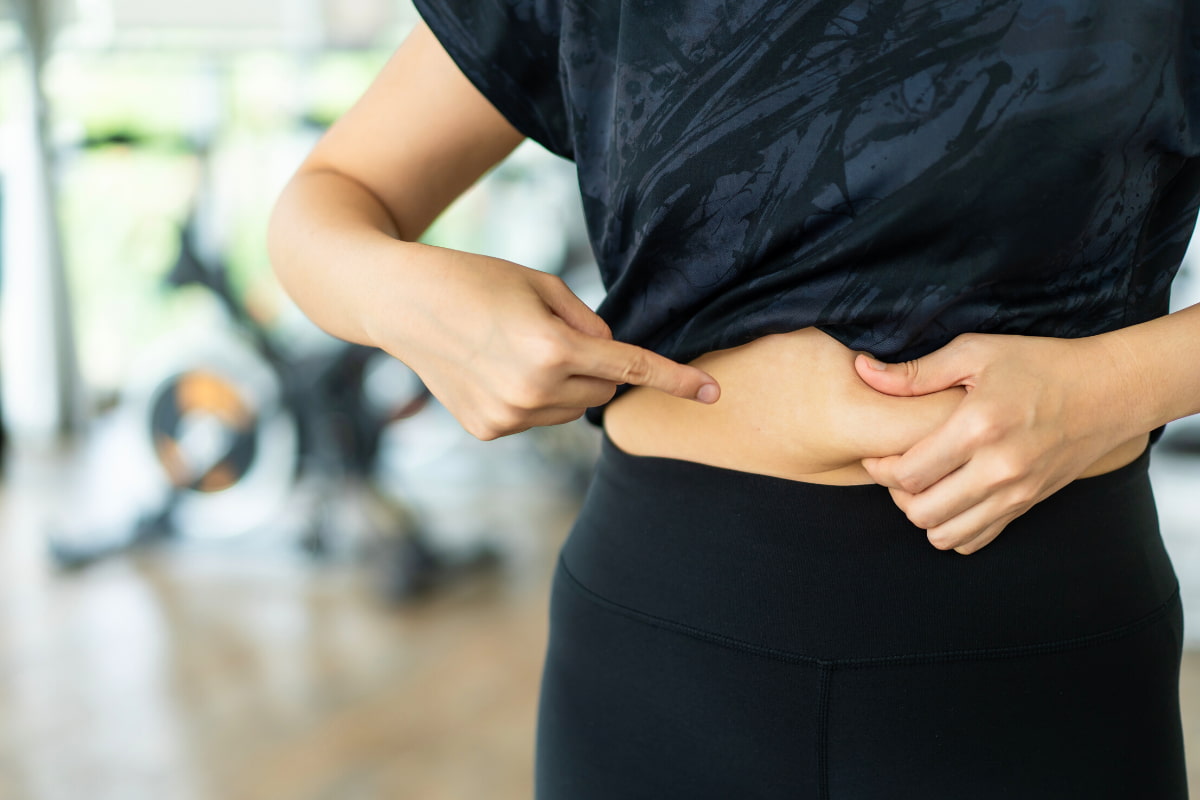The Menopause Guide to Healthier Alcohol Choices

The holidays are a special time to celebrate with loved ones, friends, and colleagues. Cocktails and wine will be flowing, but you may wonder how alcohol impacts your health during menopause, whether it’s the holidays or not. Here we’ll discuss your best drink options so you can partake in the holiday cheer safely and with less impact on your waistline and health.
Define Your Drink
First, let’s break down what constitutes a drink and define the drinking levels.
One standard drink contains 14 grams of pure alcohol, which can be found in the following:
- 12 ounces of regular beer at 5% alcohol by volume (ABV)
- 5 ounces of wine at 12% ABV
- 1.5 ounces of distilled spirits at 40% ABV
The National Institute on Alcohol Abuse and Alcoholism (NIAA) categorizes alcohol consumption into three different groups:
- Moderate or low risk: no more than seven drinks in a week or three drinks in a day
- Heavy or at risk: consuming anything more than the moderate daily or weekly amounts
- Binge drinking: drinking so much that your blood alcohol reaches 0.08 g/dL within 2 hours (about 4 drinks)
Alcohol use disorder (AUD) is a medical condition characterized by an impaired ability to stop or control alcohol use despite adverse social, occupational, or health consequences. If you are experiencing any of these, please reach out to a support group or healthcare professional.
Alcohol and Menopause – Do They Mix?
Does that glass of wine seem a little stronger than it used to? Don’t worry. It’s not the booze playing tricks on you. As we age, our ability to metabolize alcohol declines. Older individuals have lower levels of total body water and decreased levels of the enzymes needed to break down the alcohol. This combination leads to a higher blood alcohol content (BAC) than a younger person who consumed the same amount of alcohol. Keep this in mind when considering that second or third drink, and make sure you have a designated driver.
Moderate Drinking
If you choose to drink, it is best to do so in moderation. There are several health benefits associated with moderate drinking. A 2016 study found that alcohol intake is associated with a decreased risk of coronary heart disease in postmenopausal women. Another study of the same population found that light to moderate intake of alcohol may increase bone density.
Moderate drinkers may also benefit from alleviating some symptoms of menopause and perimenopause. A 2007 study found that perimenopausal women who drank lightly and infrequently may have fewer hot flashes than those who did not.
Heavy Drinking
While moderate drinking may be protective against some symptoms, it is essential to remember that alcohol is not increasingly protective. In other words, the more you drink, the greater your risk for adverse physical and mental health problems. Heavy drinking can lead to some types of cancers, gastrointestinal problems, accidents, and the worsening of previously diagnosed medical conditions.
Making Better Alcohol Choices
Choosing not to drink alcohol is always an option, but if you do imbibe, it can be helpful to understand the pros and cons of popular drinks so you can make the best choice.
Beer
Made of water, hops, yeast, and barley, beer is one of the heavier drink options. An average 12-ounce beer provides about 150 calories. Darker beers, like stouts, are even higher in calories, alcohol content, and carbohydrates. If beer is your drink of choice and you are watching your weight, opt for a lighter beer like pilsners.
Beer does provide some nutritional value and health benefits from B vitamins, selenium, calcium, and silicon. Dietary silicon is important for bone and joint health, and studies have shown that beer may protect against osteoporosis. The hops in beer also contain polyphenols that may provide benefits during menopause. A 2017 study found that moderate consumption of beer reduced night sweats and hot flashes in menopause.
Wine
Another popular choice, wine, packs about 125 calories per 5-ounce serving. Both red and white wines are made from fermented grape juice. As you may expect, white wine is made from white grapes, whereas red wine is made from red grapes. However, red wine is fermented with the skins and seed intact, and white wines are not.
Due to the difference in the fermentation process, red wine is full of polyphenols, especially resveratrol and quercetin. Resveratrol has been found to reduce incidents of cardiovascular disease, improve lipid profile, and decrease inflammation. Quercetin has been linked to improvements in eye diseases, allergies, and arthritis, and cancer risk reduction.
Liquor
While liquor is the strongest option in terms of alcohol by volume, it also boosts the lowest amount of sugar and carbohydrates. Since the alcohol percentage per serving is higher, it takes a smaller amount to feel the effects. However, it is vital to choose your mixer wisely. Fruit juices, sodas, and premade mixers are often full of calories and added sugar. Opt for diet tonic water, club soda, or fresh fruit instead. Some tropical fruits like pineapple are high in sugar so keep that in mind.
The type of liquor you choose could also impact your morning after. As a result of the fermentation process, darker liquors like whiskey or bourbon have higher levels of cogeners. Studies have shown that higher levels of congeners may result in worsened hangover severity.
No matter what drink you choose this holiday season, a good strategy is to drink plenty of water before and between drinking and also eat something. Drinking on an empty stomach can intensify the effects of alcohol. Don’t forget to drink responsibly and in moderation. Always have a designated driver.
Check out our guide to festive cocktail and mocktail ideas from our community. Cheers!
Looking for more expert support on a healthy lifestyle in midlife? Download Midday from the App Store or visit us at Midday.Health.
Erin Stanton, RDN, MPH, is a registered dietitian and certified lactation counselor residing in Atlanta, Georgia. She puts her master’s in public health degree to good use as a freelance writer focusing on various health and wellness topics, especially those pertaining to women and children.
Sign up for more unique women’s health content
By submitting this form, you agree to the Lisa Health Privacy Policy and Terms of Use


